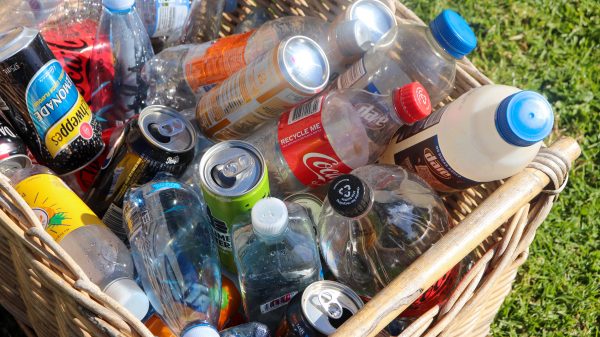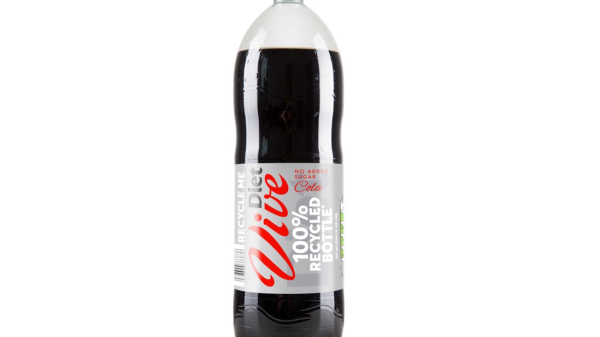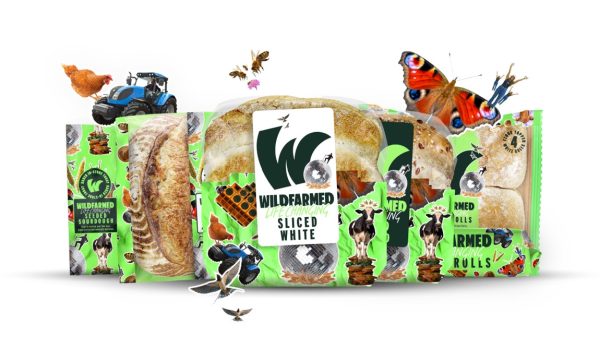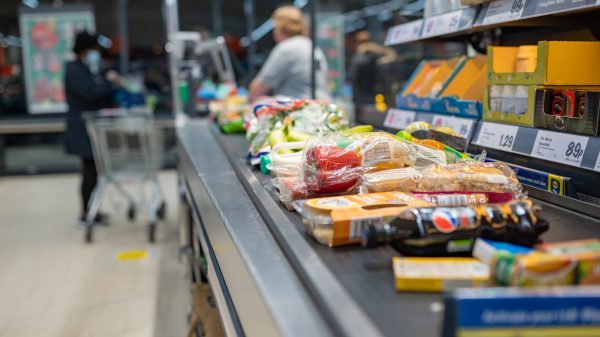Anyone else sick of the sight of chocolate yet? No, me either. A highlight for children and chocoholics everywhere, the Easter weekend is second only to Christmas for UK celebrations – and of course chocolate eggs are an important part of that.
This year, an estimated £457 million has been spent on Easter eggs, with over 80 million eggs being sold in the UK each year. With so many eggs out there, it’s likely that many households still have a number of uneaten chocolate eggs and sweet treats hanging around, waiting to be eaten.
So what to do with this surplus? Although throwing one uneaten Easter egg in the bin might not seem like a big problem in the grand scheme of things, new research from Too Good To Go says otherwise.
The world’s largest marketplace for surplus food found that almost a quarter (24%) of households admit to throwing away at least one uneaten Easter Egg after the Easter period, which in reality, causes serious harm to the environment.
Grocery Gazette spoke with Too Good To Go UK and Ireland managing director, Sophie Trueman on the issue of food waste at Easter and what supermarkets and suppliers can do to help.
Fighting Easter food waste
“There’s always the potential for more food waste over festive occasions,” Trueman says, noting that with around 28 million households in the UK, the research shows that almost one million Easter eggs are wasted each year.
On a wider scale, 10% of all greenhouse gas emissions globally comes from food waste, a figure she describes as “staggering” and which has a “big impact” on the environment.
According to Too Good To Go, the average Brit is wasting £5.84 worth of ‘best before’ dated food each week without checking its freshness, resulting in an average of £303 of food per year wasted. On top of this, only 52% of consumers believe that food past its best before date is safe to eat, despite these dates indicating quality rather than safety.
Trueman explains that as Easter tends to revolve around chocolate, which typically has a long shelf life, it can be kept for much longer – long beyond the ‘best before’ date.
She adds that this doesn’t only need to apply to Easter, urging consumers to use their senses to “look, smell, taste and don’t waste”.
With food waste proving to be a hot topic of late, there are lots of solutions to help businesses and people cut back on their excess. Too Good To Go’s social media channels offer recipes that use up leftover food or incorporate items that might have gotten lost at the back of the kitchen cupboard.
How can supermarkets help combat waste?
However, while there are certain things that consumers can do in the home, Trueman admits that supermarkets also “play a huge role in helping to combat food waste, particularly because of their scale and influence”.
Currently, Too Good To Go works with just under 10,000 grocery stores across the UK, with retailers including Morrisons, Spar, Co-op and Aldi – who are “incredibly engaged partners” – in helping to limit food waste and redistributing surplus food.
“It’s been great to see a lot of our major supermarkets leading the way in driving awareness with food waste.”
As part of its partnerships with these grocery retailers, consumers can download the free Too Good To Go app and search for their local participating store. They can then purchase a ‘Surprise Bag’ which contains a variety of surplus grocery items worth at least £10, sold for a much smaller fee.
However, while Trueman applauds the efforts of these retailers year-round, she admits that supermarkets in general do contribute to food waste, particularly at times like Easter.
This year alone, many leading retailers and FMCG brands launched new product innovations, from a variety of uniquely flavoured hot cross buns to Heinz Hot Cross Bun flavoured mayonnaise.
While these are created with the consumer in mind, they certainly aren’t helping the issue of food waste with many likely buying the items after being intrigued by the weird and wonderful flavours, rather than having any intention of actually consuming the entire product.
Trueman says these types of products “definitely increase food waste,” adding that in these situations, its best to “try to repurpose them”, by giving any unwanted food to friends or family.
She says that supermarkets also offer significant discounts in the run-up to festivities like Easter, which as a result, “might actually be causing people to buy more than they need”.
What can retailers and the government do to help?
So far, Trueman says that supermarkets have made positive movements in the industry around the guidance on best before dates, which is “really helping” shoppers to limit their levels of food waste.
However, “ultimately, the need here is collaboration from people, businesses and the government to help address the issue,” she adds.
For retailers, Trueman says that technology could really help them to ensure that they have the right level of stock for the amount of customers they cater for.
“Stock management in general is an area that we could really rely on artificial intelligence. The data could help retailers understand where they see peaks in their stock over time, where they get things wrong and how they can predict that better next time.”
In terms of how the government can contribute, one of the key changes she would like to see is stricter regulation around what businesses can legally throw away.
“Too Good To Go is present in seventeen countries across the globe and in markets such as France, there’s certain limitations around what large retailers can throw away, which means they’re much more engaged in that area.”
Ultimately, more can be done to tackle the issue on every level of the food supply chain, from government officials to local shoppers at the supermarket.
While food waste in general continues to be a huge problem, holidays like Easter, Halloween and Christmas are only making things worse.
Although retailers are looking to heavily reduce waste in areas such as plastic – with Waitrose having stopped using plastic trays and removed plastic windows from nearly all of its Easter confectionery this year – its clear that food itself needs to be higher on the priority list.










